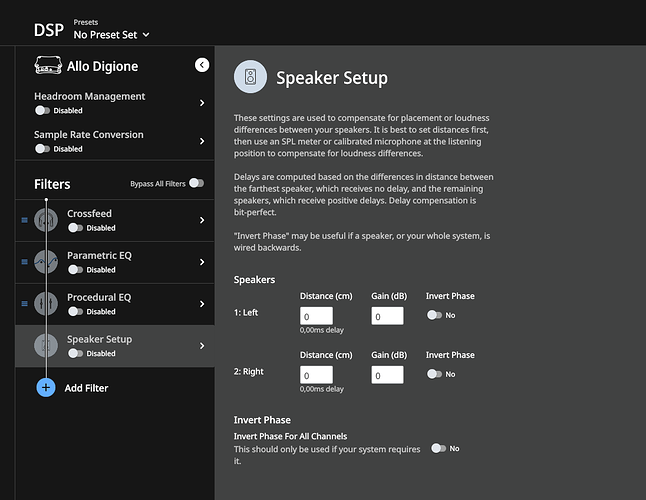My first time posting here (I think). First, let me say I am a walking/talking Roon commercial, wherever and whenever possible praising Roon’s ease of use for music library functions.
Please humor me while I describe an event Re. absolute polarity, that well demonstrates the degree to which it affects performance. (I have been a supporter of “correct” polarity since I discovered it in the 1980s.)
This occurred @ our active music display room @ 2018 Rocky Mountain Audio Fest. A music lover I’ll call X enjoyed our sound for an extended period, so much so that X returned the following day with his spouse in tow. X is a classical violinist, his spouse a classical music singer. At the time X worked for Microsoft, and he authors an amateur high end blog.
On X’s second visit he brought a thumb drive with a DSD program comprising a landmark performance of a renown classical violinist, audio quality among the best I’ve ever heard.
About half the time, just by listening, I can accurately predict if/when a certain music program plays with inverted polarity. While listening to X’s thumb drive, I would have bet $100 cash, maybe even more, this program was inverted (because everything in this chain especially the program was such high resolution). I knew we were missing a lot of performance, so I had to politely suggest inverting the signal to my partner in the room, in the middle of the listening session.
We did not have Roon (I have known since day 1 about Roon’s inverting feature), and it took my partner about 45-60S to invert the signal (reboot player, etc.) I was standing behind X. Correcting the polarity improved the experience to such high degree I would struggle to find an analogy to describe it. Most of the several people in the room made involuntary verbal reaction. X, seated in front of me standing, turned slowly back to look at me with a look on his face that did not require words. To me, his look said, “How on earth could you have known that, and how could that transform the performance to that degree?”
We shared our room with an expert and successful pro analog/digital engineer who makes DACs and a super high value server/streamer. Based on our shared experiences in our room, he planned to add (and may have even now released) a feature for his player, whereby the user can listen once to any streamed music program, determine by listening what is the “correct” polarity, and his player would remember and pre-select that choice every time that music plays from that streaming source. (Note: it’s possible that a different streaming source playing the same music program could have different polarity. Any/every time ones and zeros are handled/processed, they are subject to being inverted.)
I implore Roon, if possible, to add the above described memory function for absolute polarity.
Just try inverting absolute polarity right now with some of your favorite programs, and measure your results. A small ratio of programs make little to no audible difference. Some listeners and some speakers are more sensitive than others to the difference. In other cases the difference is profound (see my story above).
Inverted tends to sound like the soloist, vocalist is stuck in the box, like their back faces the microphone. Correcting it makes the music project out of the box, flow is improved, even more wood tone for string family instruments (esp. soloist). Often the bass is a good tell, sounding more dynamic and punchy when correct, and again, more wood tone for double bass.
I love Roon and prefer to continue using it, AND it sure would be welcome to have a memory feature for absolute polarity instead of manually checking every time. Roon has obviously already well established that it owns the world for ease of library functions. For certain picky listeners, such memory feature for absolute polarity just furthers the case for Roon’s continued dominance.


